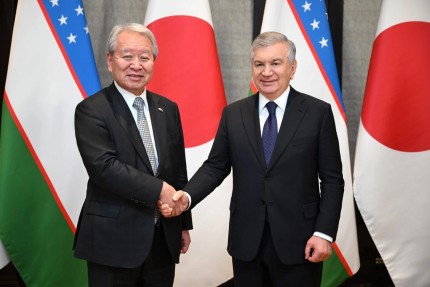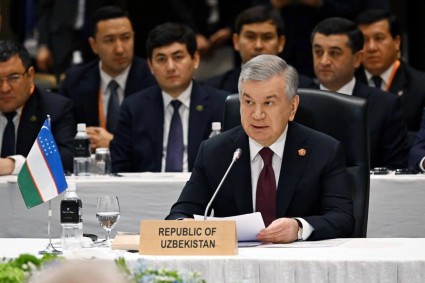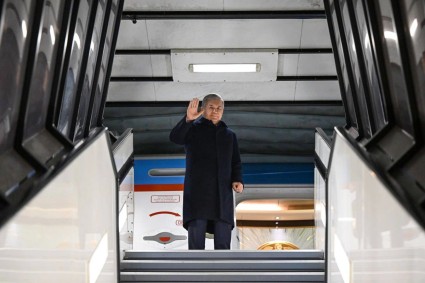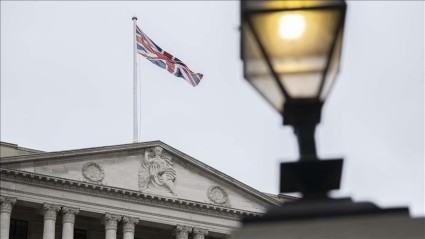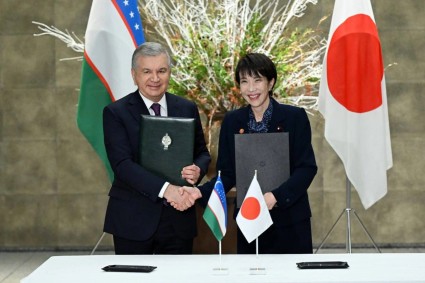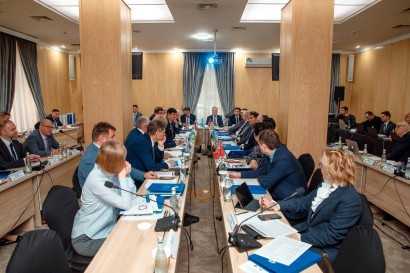On October 23, President Shavkat Mirziyoyev hosted the Administrator of the United States Agency for International Development (USAID) Samantha Power.
She arrived in Uzbekistan to attend the C5+1 format (Central Asian and the United States) Ministerial Meeting on October 24 in Samarkand.
The United States, through USAID, is the largest development donor in Uzbekistan, implementing joint healthcare, education, green energy, agribusiness and other area projects.
At the meeting, the parties discussed the ways to “further advance constructive and mutually beneficial bilateral cooperation” were considered, as well as “the practical implementation of the agreements reached during the summit of heads of state in the C5+1 format on the sidelines of the UN General Assembly session in New York in September,” it is noted in a statement from the presidential press service.
Political reforms must accompany economic ones
In a statement following the talks, Samantha Power underscored that the meeting with Shavkat Mirziyoyev was “long and productive” and covered a wide range of issues between USAID and the US government with Uzbekistan.
While also, “a broad agenda was discussed that is consistent with economic reforms and the fight against corruption that the president [of Uzbekistan] is pursuing,” she added.
“We discussed the importance of political reforms accompanying economic reforms so that people who see corruption or see leaders who are not realizing that vision can speak up and bring it to the attention of those who want to fight corruption. We also talked about the future of US-Uzbek relations, which we think is very, very bright,” Samantha Power said.
She opined that "the relationship between our two countries has never been so strong" and "it's getting stronger every day."
“One of the [Uzbekistan] president’s priorities, of course, is regional connectivity, which will create many more job opportunities for young people if there is transportation infrastructure and some digital connectivity, which USAID is committed to supporting at the regional level,” said the head of the US government agency.
According to her, the US support in these issues will be discussed with the trade ministers of the five countries in the region in Samarkand.
When asked how she assessed the implementation of reform programs in Uzbekistan in recent years, Samantha Power replied: “I think it is fair to say that in many areas there have been more reforms implemented in the last five or six years than in many, many years.” before that, taken together.”
“The specific anti-trafficking reforms and the gender-based violence law that people have been waiting for many years are just two examples of these reforms,” she said.
At the same time, “we would like, and the president [of Uzbekistan] would like to see even less bureaucracy standing in the way of investment.”
“More progress can also be made in simplifying social services, in the field of digitalization, in eliminating bureaucracy and red tape from the lives of citizens. We in the United States are also working on this,” said Samantha Power.
"And seeing the president's commitment to constructive opposition, to a free press, which he very much recognizes, to what needs to be done to expose corruption when it happens, I think we look forward to progress in those areas as well - more progress." — concluded the head of USAID.
Samantha Power became the USAID Administrator in May 2021. She became the first head of USAID to simultaneously serve as a member of the US National Security Council. Previously, she was the United States Permanent Representative to the United Nations (2013–2017), Special Assistant to President Barack Obama, and Senior Director for Multilateral Affairs and Human Rights at the National Security Council (2009–2013). She began her career as a war correspondent, is the author of several books and a Pulitzer Prize winner. Time magazine included her in the list of 100 most influential people, and Forbes named her one of the 100 most influential women on the planet.


